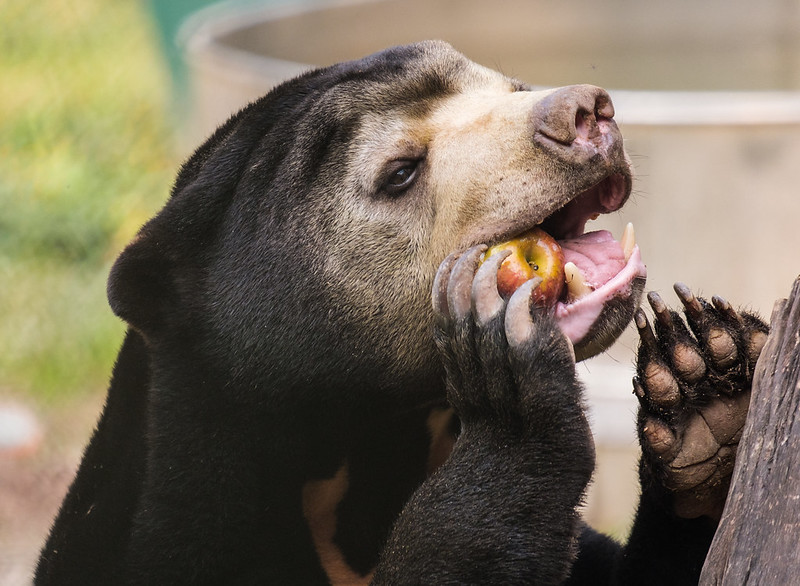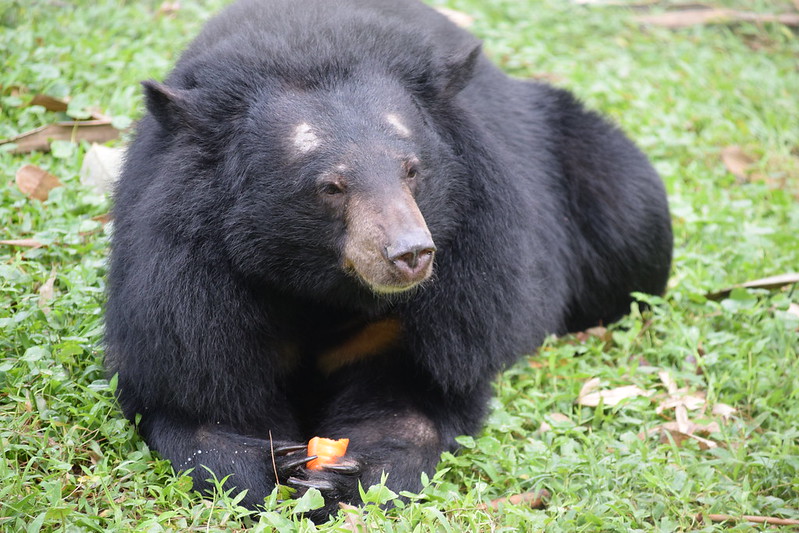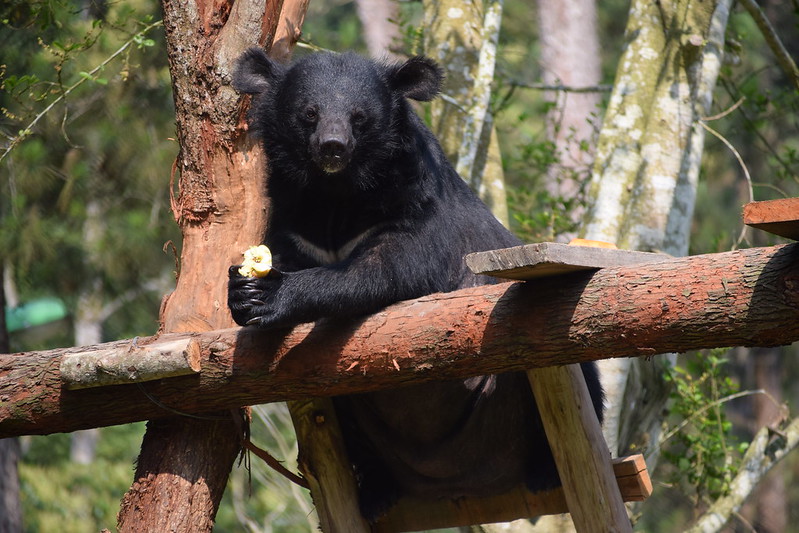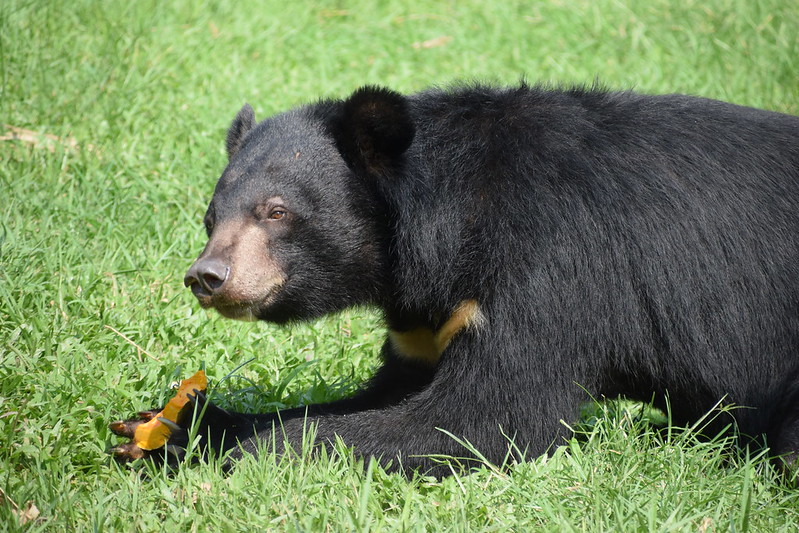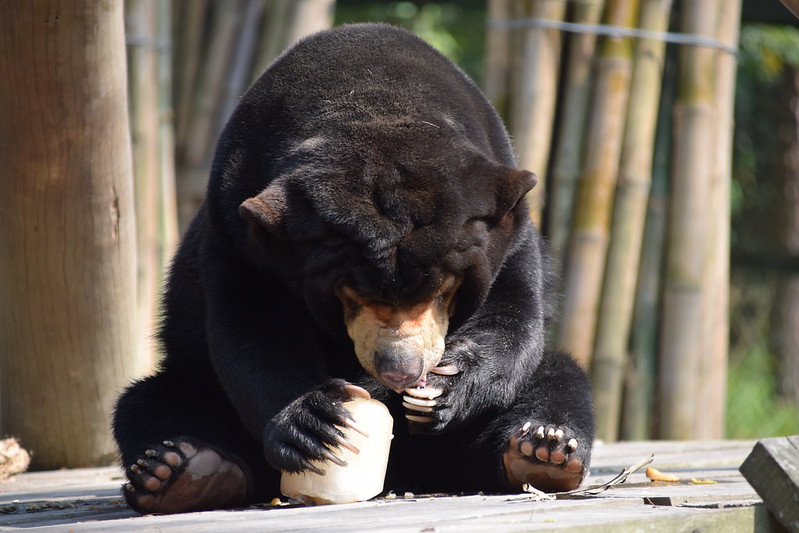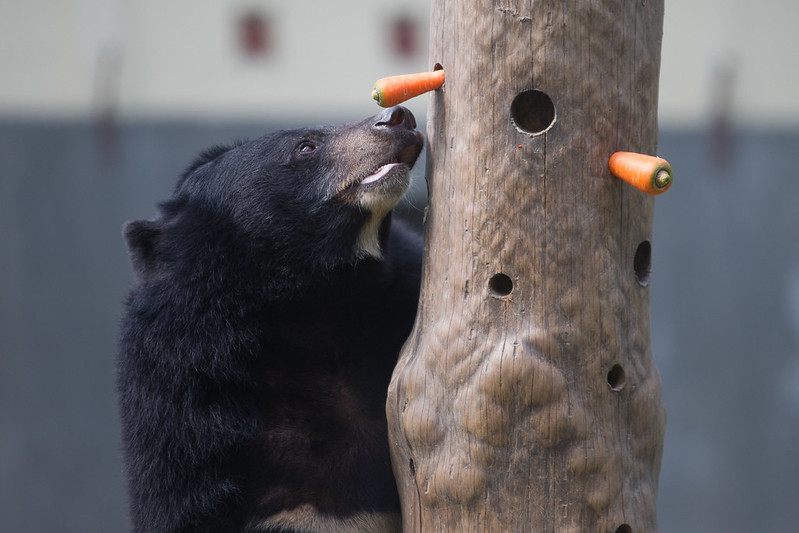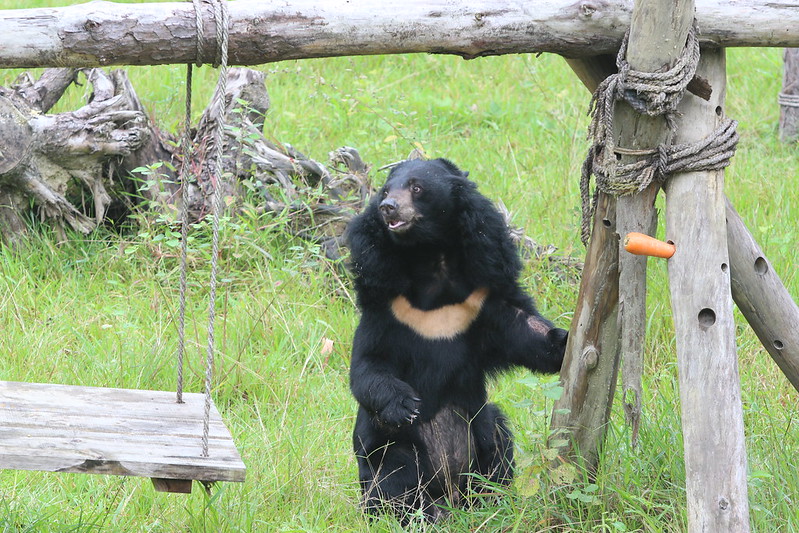Ravenous rescued bears’ appetite for life sees them eat up to 5.5 metric tonnes a week
11 May 2018
From subsisting on rice gruel to thriving on fruit and veg, rescue from the bile trade is a food revolution with long-term health and welfare effects.
In the wild, moon bears spend most of their day foraging in the forest in search of the calories to sustain them – and the tastes which delight them.
Their diet is mostly composed of fruit and vegetables supplemented with berries, shoots and roots. Although classed as carnivores, bears are opportunists when it comes to food and generally omnivorous – although they will eat carrion and hunt occasionally.
Sadly, on bile farms all this is taken from them. They are fed a completely unsuitable diet of rice or corn gruel and never have the opportunity to forage.
This can lead to obesity, painfully infected teeth and gums, and even painful bone conditions.
Once rescued, all this changes and Animals Asia’s team of bear carers do their best to mimic the bears’ natural behaviours and life-cycles.
The bears are once again able to forage for their food, while rice gruel is replaced by a nutritious and well-rounded diet based on sweet potato, carrots, pumpkin, tomato and apple, with kibble for protein.
Animals Asia Vietnam Bear and Vet Team Director Heidi Quine said:
“The bears are fed different amounts throughout the year to mimic the seasonal fluctuations of the wild, but the general rule of thumb is that they eat a lot!
“Literally tonnes of food has to be sourced, transported, prepared and spread throughout the enclosures every week, which is a massive task.”
Rescued bears are given the largest portions of food in November to help them build up reserves for winter dormancy – a kind of hibernation – while the smallest portions are sought in spring.
This month, the 175 bears at Animals Asia’s Vietnam Bear Rescue Centre are eating more than 3 metric tonnes a week, an amount which will increase to over 5.5 metric tonnes by November.
These enormous quantities are moved, stacked and chopped by a team of just four kitchen staff.
Not only do these heroes prepare all the food for the bears’ main diet, they also prepare food-based enrichment items such as rice or oat mixes, which are used as smears in the enclosure.
Animals Asia Bear Manager Lauren Werrey said:
“All bears love searching out the food-based smears as it is exactly what they would spend their days doing in the wild. But Nicole is definitely the most persistent. Long after the last satiated bear has fallen asleep in the grass, Nicole will still be out their hoovering up every last scrap of food to be found, hoping there may be one last taste of jam or dried fruit out there to satisfy her sweet tooth.”
With many rescued bears in need of urgent dental surgery, it is common for the team to have to prepare blended or steamed food for those bears recovering from a trip to the dentist.
The consistency of this food will even be matched to the bears’ period of recovery, ranging from steamed or blended, to finely chopped, to roughly chopped, before returning to normal.
This month, Hercules – the last bear rescued from Quang Ninh province in 2015 – is on steamed food as he recovers from surgery to remove a tooth during his latest health check.
Heidi said:
“The kitchen team will work with the bear carers to ensure Hercules and every other bear is getting the right quantity, consistency and types of food to keep them healthy, happy and stimulated.
“Dealing with such enormous quantities of food is logistically and financially very challenging, but that’s the reality of rescuing bears from bile farms. It’s a lifelong commitment to give daily care and the whole team is dedicated to giving the best care we possibly can. There is no question these bears deserve it.”
Animals Asia is privileged to care for over 600 rescued bears but can only do so with the support of ordinary people around the world.
To give a meaningful new life to a bear who has suffered extreme cruelty, join Oliver’s Army today and give monthly.
BACK
